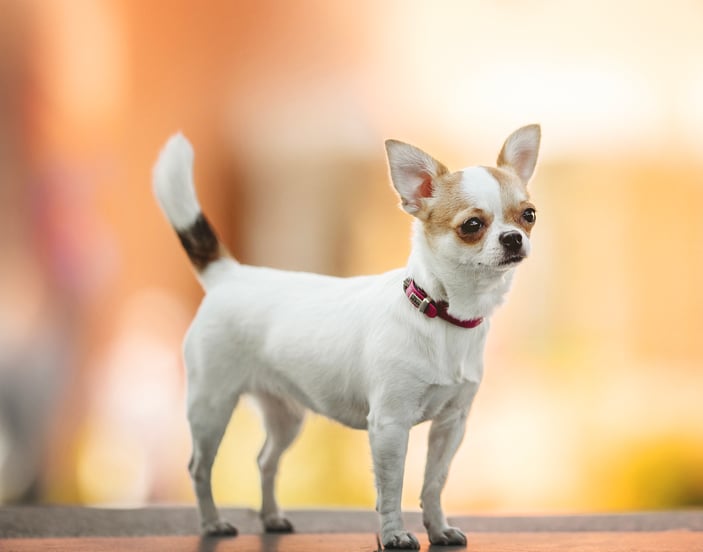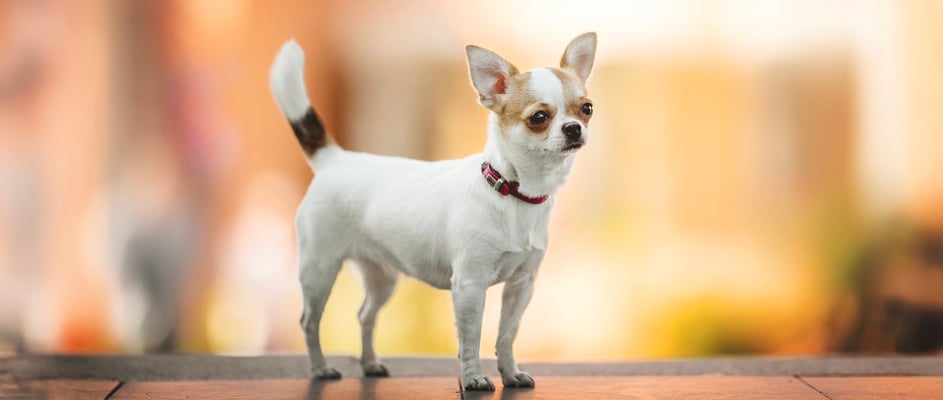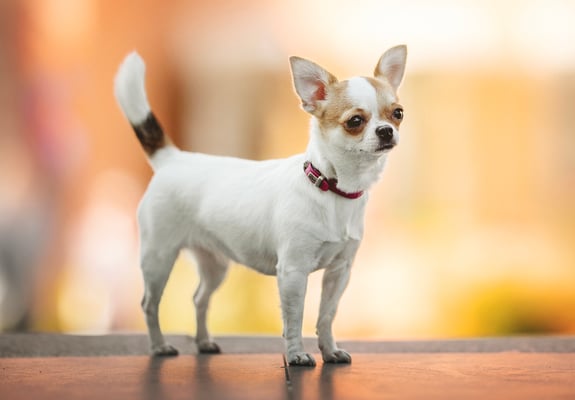The guide to owning a Chihuahua.
Want to know everything there is to know about training your Chihuahua puppy? Submit your email below, and we’ll send you a one-stop guide on all things puppy training!
Jump to:
Stats at a glance.
History of the Chihuahua.
The Chihuahua dog breed is often associated with ancient cultures and a dash of modern movie star glamour.
These companion dog sweethearts are named for the Mexican state of Chihuahua, where they were popularised and eventually introduced to dog lovers worldwide.
Many historians suggest that these pups descend from small pre-Columbian dogs revered by ancient societies. Others say Spanish settlers refined the breed in the region we now call modern-day Mexico.
Whichever theory you prefer, there’s no arguing that the Chihuahua’s lineage is filled with legends. Whether you’re walking your Chihuahua dog down the street or showing them off to friends, there’s a touch of history in every wag of that tiny tail.
Interestingly, the American Kennel Club (AKC) recognised these pint-sized canines as early as 1904. Over the decades, they’ve won hearts across the globe as a lap dog for people craving loyal companionship.
They’ve also become style icons, popping up in media, adverts, and even high-end handbags.
Don’t let that star power fool you, though. Chihuahuas are known for being bright, brave, and sometimes a tad stubborn—a combination that ensures they remain unforgettable pets.
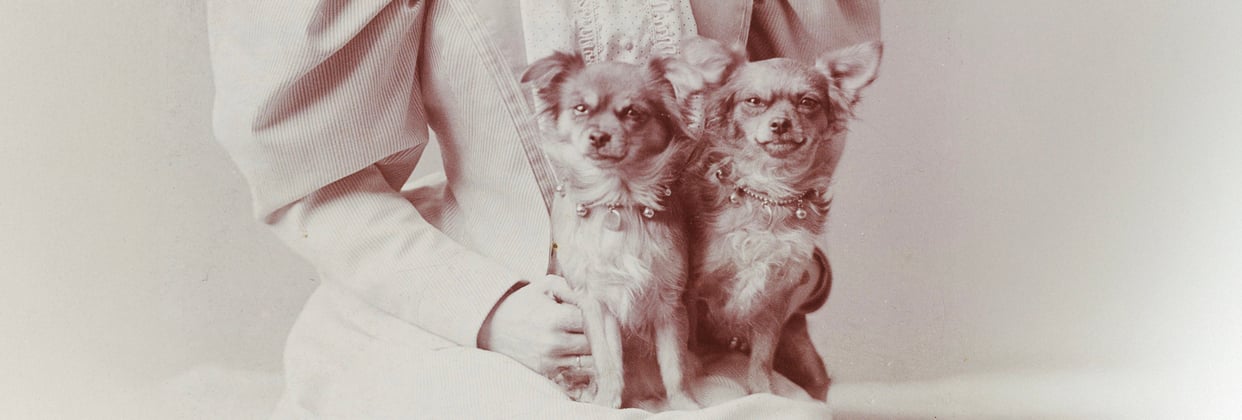

How much is a Chihuahua puppy (UK)?
If you’re considering inviting a Chihuahua dog into your life, you might be wondering about cost. In the UK, Chihuahua puppies for sale can range from approximately £500 up to more than £2,500.
Variations in price often depend on pedigree, coat type (such as long-haired Chihuahua or short-haired), breeder reputation, and show lineage.
Before you commit, we’d urge you to do plenty of research. Look for a reputable breeder who allows you to meet both parents, offers health certificates, and generally shows genuine care for where their pup is heading.
Adopting a Chihuahua from a rescue organisation is another fantastic choice, as many lovely Chihuahuas are small but abundant in shelters. You’d also be giving a wonderful dog a second chance at a happy home.
If you’re a first-time puppy parent, you might find it helpful to explore resources about new puppies and the essentials they need, like our guide to puppy essentials.
We cover tips on bedding, feeding, training, and everything in between.
Colours and coat types.
Chihuahuas come in a range of colours as large as their personality. Don’t let the Chihuahua’s small size fool you; from merle coats to glossy chocolate browns, these dogs can dazzle with fur patterns that reflect centuries of careful breeding.
The most common colours of Chihuahua are:
Black
Brown
Cream
Fawn
Red
Coat types
1. Smooth coat (Short-Haired Chihuahuas)
This is the classic look many people associate with the breed.
Short-haired coats lie close to the body, giving a neat and sleek appearance. These Chihuahuas require minimal grooming, yet their fine fur still needs the occasional brush.
2. Long coat (Long-Haired Chihuahua)
A long-coated Chihuahua looks downright regal with its feathery ears and flowing fringe. Their fur is soft, often slightly wavy, and requires more frequent brushing—at least two to three times per week—to prevent tangles.
Fans of the long coat love how it accentuates the dog’s expression and makes them look particularly cuddly.
Whatever coat you choose, you’ll discover your preference is a reflection of style rather than needing a specific function.
Both coat varieties are suitable for being your beloved companion dog. For bathing and grooming tips, you can also explore our broader guide to keeping pups fresh in our how to bathe a dog article.





Size and weight.
How big does a Chihuahua get?
Chihuahuas are small, sometimes extremely so, which is precisely why many folks adore them. Typically, they measure about 15-23 cm at the shoulder and weigh between 1-3 kg.
That petite frame is surprisingly sturdy, but owners must still be mindful of handling them gently.
Are Chihuahuas good for apartments?
These dogs make perfect condo or apartment dwellers, since they won’t occupy loads of space.
However, exercise and mental stimulation remain crucial, even for a Chihuahua who might prefer your lap.
If you’re comparing them to other small dog breeds, you can find plenty of helpful info in our ‘Top 10 Small Breeds’ post.
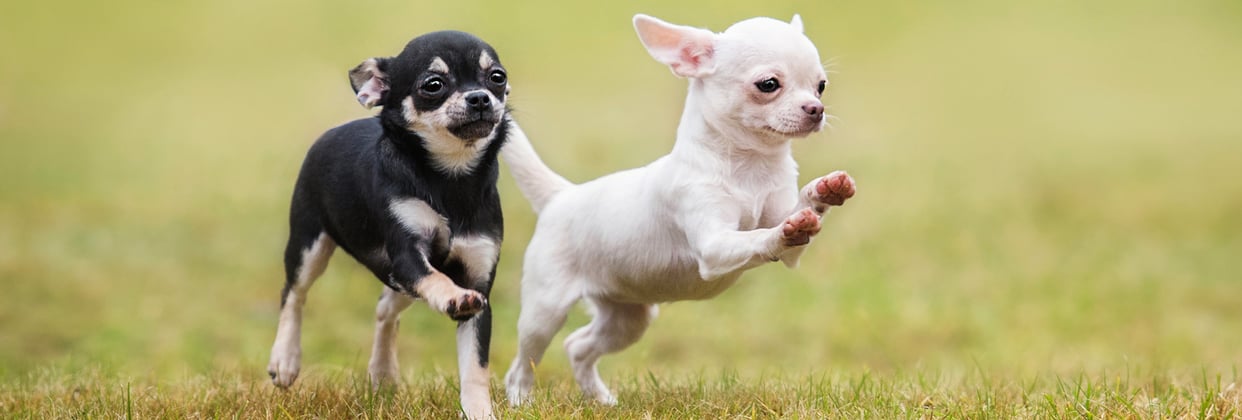

Temperament and behaviour.
Big personality in a tiny body
One phrase you’ll hear often is: “Despite their small size, Chihuahuas are known for having massive attitudes.” Indeed, many Chihuahuas make it abundantly clear they are the boss!
They tend to bond closely with their favourite person, showering them with loyalty and affection. Don’t be surprised if your Chi stationed on the sofa claims that space as theirs alone.
Chihuahuas are small but they are hardly pushovers. They can be wary of strangers and may bark to let you know someone’s at the door.
They’re also protective of their domain, which can be great for owners who love a tiny watchdog.
Just remember, a Chihuahua meeting new people or larger dogs might need extra reassurance.
Are Chihuahuas good family pets?
Yes, absolutely—but with a few caveats. Chihuahuas need a stable home environment and do best with children who understand how to handle them gently.
Because of their delicate size and sometimes feisty temperament, they pair best with older, calmer children who can respect the dog’s personal space.
Are Chihuahuas good with other pets?
If you’re wondering if they get on with bigger canines, they can, though you’ll want supervised introductions in a controlled environment.
Are Chihuahuas good with cats?
Yes, Chihuahuas can generally get along well with cats, especially if they are properly introduced and socialised together; however, individual personalities of both the cat and dog will determine how well they coexist, with some Chihuahuas potentially exhibiting prey drive towards smaller animals like cats, depending on their upbringing.


Training a Chihuahua.
Consistency and positivity
Many dog enthusiasts say Chihuahuas are small in body but big in spirit—sometimes that spirit can be a bit stubborn. Consistent training with positive reinforcement is crucial.
They respond exceedingly well to rewards, praise, and patience. Punishments or harsh corrections can backfire, making your Chi uneasy or fearful.
Keep training sessions short and sweet. A couple of minutes at a time, a few times per day, can be more effective than a single session that drags on.
If they do something right, be quick to praise them. They love pleasing their favourite humans when they understand the rules.
House training
Because Chihuahuas are small, house training requires vigilance. They have tiny bladders, so regular potty breaks or puppy pads come in handy.
Set a routine that includes taking your Chihuahua out first thing in the morning, after meals, and before bedtime.


Shedding and grooming.
Smooth or long?
Chihuahuas come in both smooth coat and long coat varieties. Grooming needs differ slightly, but in general:
Smooth coat: Brush at least once a week. Use a soft-bristled brush to remove loose fur and maintain that glossy look.
Long-haired Chihuahua: Brush two to three times per week to avoid knots. A cosy grooming session also doubles as bonding time.
Do Chihuahuas shed?
Despite their small size, they do shed, but not excessively compared to some larger breeds.
Look for a gentle dog shampoo and keep baths short. Over-bathing can lead to dry skin, so once every month or two is usually sufficient, unless they’re exceptionally mucky from rolling around.
If you need more details, have a peek at our dog shampoos for itchy skin roundup if your Chi happens to have dryness or allergies. We explore which products are safe for small, sensitive pups.
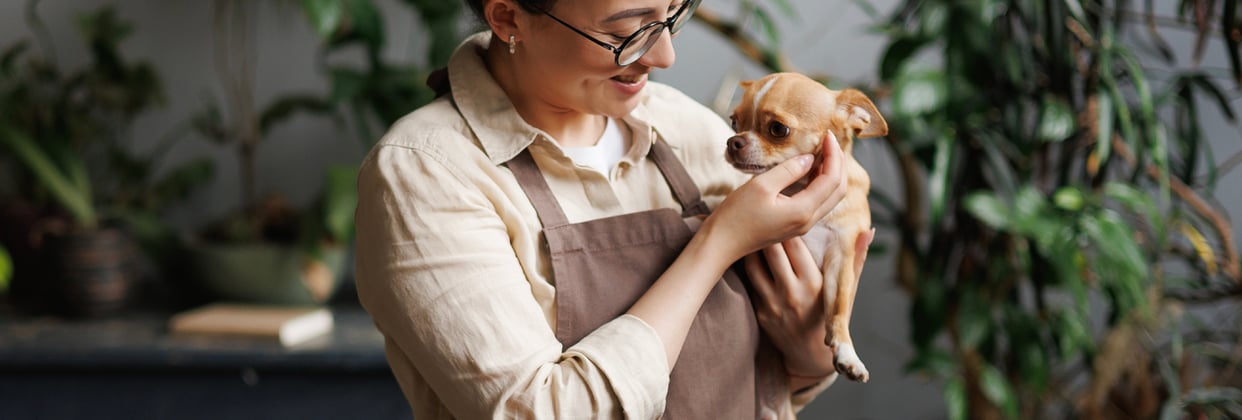

Exercise and mental stimulation.
How much exercise?
It’s tempting to regard a tiny Chihuahua as a permanent lap warmer. But a healthy Chihuahua benefits from daily playtime and at least 20-30 minutes of walks or games.
They come from a background of tenacious guard instincts, so exploring the outside world is important for their mental well-being.
Just remember that their energy levels can vary; some are content with short strolls, while others zip about like high-strung dynamos.
Even if it’s just a romp in your living room with a squeaky toy, providing interactive toys or puzzle feeders can keep them from getting bored.
Their big brains love mental challenges—sniffing out treats hidden in rolled-up towels or practising new commands can entertain them for ages.
Indoor activities
Because Chihuahuas are small, many owners underestimate their need for movement. Indoors, try tiny obstacle courses with mini tunnels or small steps. Avoid letting them leap from high furniture, as it can strain their legs and joints.
A safe, supervised environment ensures they can exercise without risking injury.
If you find your dog climbing the walls (or your sofa cushions), you might want to check out our tips on how to make your dog happy. We discuss ways to switch up play routines and keep them engaged, no matter their size or breed.


Feeding and nutrition.
How much should a Chihuahua eat?
Because Chihuahuas should be fed a balanced, complete dog food, portion control is key. As Chihuahuas are small, they don’t eat huge amounts, but they do require high-quality nutrition.
Many puppies should be fed more frequently—around three to four times a day—before gradually moving to adult portions.
For mature Chihuahuas, they should generally be fed twice daily or in smaller meals throughout the day, ensuring they maintain steady energy levels.
Always monitor weight. Chihuahuas are generally healthy, but they can gain weight if overindulged in treats.
Watch for tummy upsets if you switch foods. Always transition gradually over several days to prevent digestive issues.
Maintaining a healthy weight also helps with longevity. A Chihuahua carrying even an extra pound is at higher risk for joint and heart issues.
Foods to avoid
Like any dog, Chihuahuas thrive on a balanced canine diet. They should not eat chocolate, onions, or other potentially toxic human foods.
If you’re ever unsure, you can check resources such as 'can dogs eat strawberries?' or 'can dogs eat radishes?' for general guidance on safe fruit and veg.
Whenever in doubt, speak to your vet before introducing new morsels.
Common health issues in Chihuahuas.
Overall health
Although Chihuahuas are generally healthy, they can be prone to certain health concerns.
Regular check-ups are vital for early detection.
Many Chihuahuas sail through life with minimal issues, but let’s talk about some conditions you should know about.
Note: Costs are approximate and can vary based on location and specific veterinary practices.
If you notice a pattern of itching, watery eyes, or unusual lumps, see a professional. The earlier you address potential concerns, the better the outcome.
For more insight about common canine health woes, pop over to "Understanding Dog Sleeping Positions" if your Chi’s restful posture looks off.
It might not be a direct health concern, but changes in how they doze can sometimes reveal discomfort.
How long do Chihuahuas live?
Chihuahuas are a beloved little breed that has a range of sizes, with some being a teacup variety. It's important to remember the Chihuahua breed variations, which means their health can vary quite a bit.
However, these affectionate companions have a good life expectancy, typically ranging from 12 to 20 years, depending on genetics and overall care.
Separation anxiety
Many Chihuahuas form super-strong bonds with their owners. They can develop separation anxiety if left alone for long stretches.
Signs include barking, whining, destructive chewing, or trembling when you’re about to head out the door.
Helping them cope involves short practice departures, safe chew toys, or a comfy crate to reduce stress. If you’re worried, check our tips in our blog article on separation anxiety for strategies to keep your Chi calm.
Pet insurance for Chihuahuas.
Given that Chihuahuas can be fragile due to their size, and prone to certain health concerns like patellar luxation or dental issues, having comprehensive insurance can be a literal lifesaver.
Vet bills can pile up quickly, and the last thing you want is to compromise on medical care for your best friend.
At Waggel, we’re passionate about helping dog lovers protect their pets.
Although we’ve developed guides for other popular breeds, like our Labrador breed guide or our Jack Russell Terrier breed guide, Chihuahuas also deserve that top-notch safety net.
Having the right coverage gives you peace of mind when faced with sudden accidents or congenital conditions you might not anticipate.
Plus, if you’re hoping to join a community of dog owners who share experiences about training, care, and practical advice for small canines, you’ll find no shortage of resources in our blog.
From exploring dog cough remedies to understanding worming treatments, we’ve gathered a bounty of tips in one easy place.
